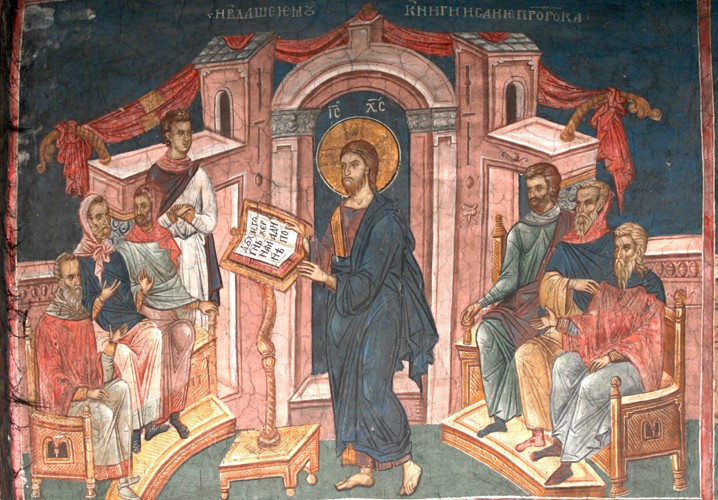
January 23, 2022; Luke 1:1-4,4:14-21; Third Sunday in Ordinary Time
The evangelist Luke begins Jesus’ ministry with the passage we have just heard in today’s gospel. Luke uses this passage as an overture to the gospel. It enables him to center on what he thinks is most important about Jesus’ ministry. What is most important about Jesus’ ministry? You have just heard it: To proclaim glad tidings to the poor, liberty to captives, freedom to those who are oppressed. This truth lies at the heart of Jesus’ mission, and throughout the rest of his ministry we watch as he enacts it: as he proclaims God’s love to the poor, sinners, tax collectors, and prostitutes. Jesus does not associate with the rich and powerful but with the poor and the marginalized.
This approach is not some innovation on Jesus’ part, some new idea that he discovered. The text which most clearly describes this idea is the text which Jesus reads in the synagogue. It is the text from the Jewish prophet Isaiah. God’s care for the poor and the marginalized is a central conviction of the Hebrew bible. Jesus’ ministry was to the poor and the marginalized because he knew the Hebrew bible, because he was a Jew. So both the Hebrew bible and the gospel today speak with one voice. They present to us a God who is orientated to care for the poor and the lowly, a God who invites us to adopt the same orientation.
All too often we approach our faith in purely personal terms, in terms of what it can do for us. “I believe so that I can go to heaven. I believe so that I can avoid temptation. I believe so that I can pray and ask for God’s help.” All these reasons to believe are valid and good. But they are not at the heart of Jesus’ mission. Jesus does not call us inward to a simply personal relationship with God. Jesus calls us outward. He wants us to reach out to the poor and the lowly as he did. He wants us to adopt the orientation of the God of Israel.
We can adopt that orientation in many ways. Parents know that they must love all their children. But they also know that they must offer special care to the child who is struggling, the child who is less gifted, the child who is “poorer” than their other children. If we have been given authority over people as an employer, manager, teacher, or healthcare provider, we certainly should exercise that authority fairly and generously to all. But we also have a special responsibility to care for those who struggle to do their jobs well, who are pinched economically, or who lack the popularity that others claim as their own. As we support political policies in our country today, all of us should support those that allow us to work and protect our families. But we must also pay special attention to those in our society who do not have adequate access to proper nourishment, education, and healthcare.
Our God loves us all, but the scriptures speak with one voice that God devotes special care to the poor and the lowly. That is why Jesus did the same in his ministry. Because we are disciples of Jesus, so must we.
